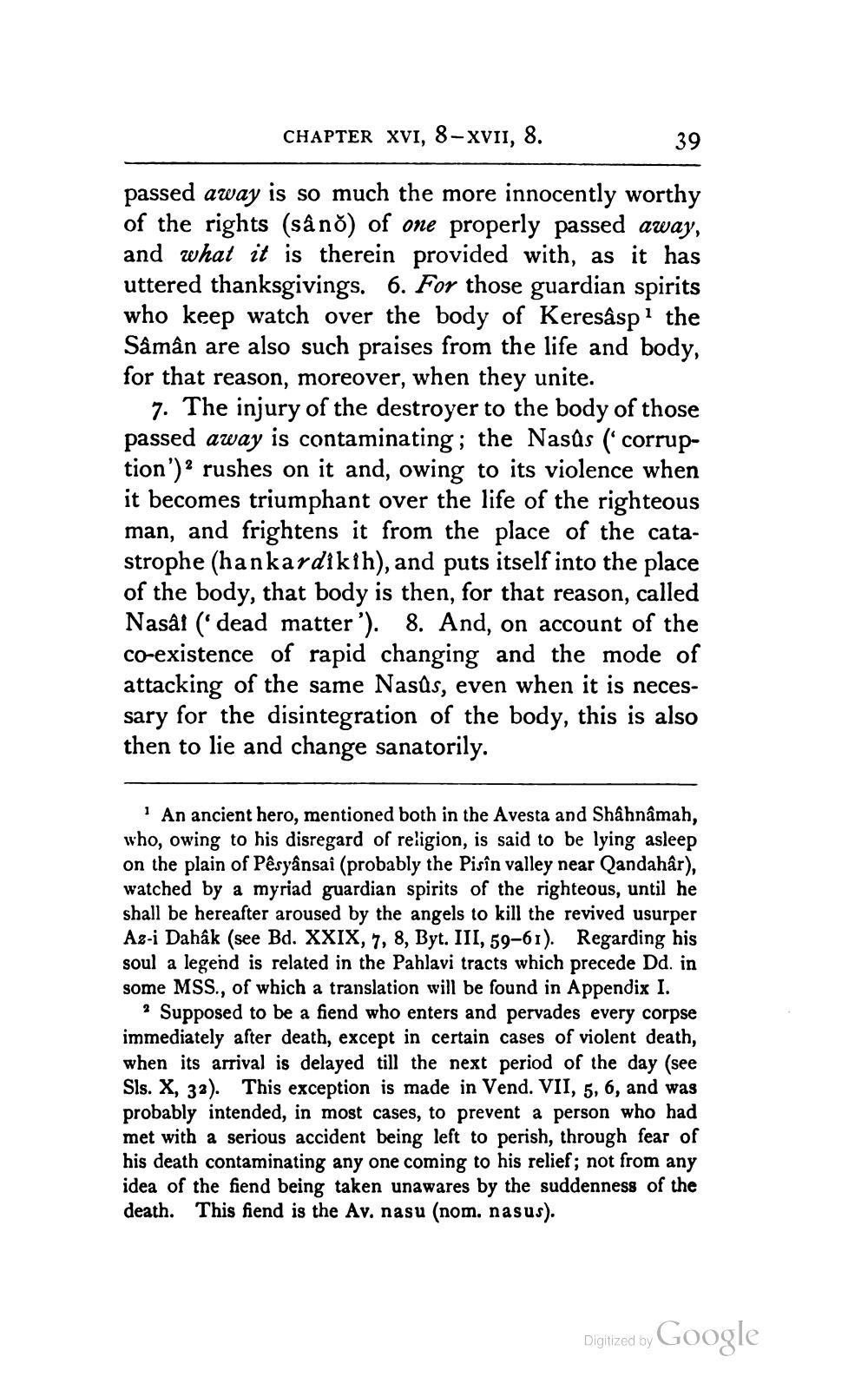________________
CHAPTER XVI, 8-XVII, 8.
passed away is so much the more innocently worthy of the rights (sâno) of one properly passed away, and what it is therein provided with, as it has uttered thanksgivings. 6. For those guardian spirits who keep watch over the body of Keresâsp1 the Sâmân are also such praises from the life and body, for that reason, moreover, when they unite.
39
7. The injury of the destroyer to the body of those passed away is contaminating; the Nasûs (corruption') rushes on it and, owing to its violence when it becomes triumphant over the life of the righteous man, and frightens it from the place of the catastrophe (hankardikih), and puts itself into the place of the body, that body is then, for that reason, called Nasal ('dead matter'). 8. And, on account of the co-existence of rapid changing and the mode of attacking of the same Nasûs, even when it is necessary for the disintegration of the body, this is also then to lie and change sanatorily.
An ancient hero, mentioned both in the Avesta and Shâhnâmah, who, owing to his disregard of religion, is said to be lying asleep on the plain of Pêsyânsaî (probably the Pisîn valley near Qandahår), watched by a myriad guardian spirits of the righteous, until he shall be hereafter aroused by the angels to kill the revived usurper Az-i Dahâk (see Bd. XXIX, 7, 8, Byt. III, 59-61). Regarding his soul a legend is related in the Pahlavi tracts which precede Dd. in some MSS., of which a translation will be found in Appendix I.
2 Supposed to be a fiend who enters and pervades every corpse immediately after death, except in certain cases of violent death, when its arrival is delayed till the next period of the day (see Sls. X, 32). This exception is made in Vend. VII, 5, 6, and was probably intended, in most cases, to prevent a person who had met with a serious accident being left to perish, through fear of his death contaminating any one coming to his relief; not from any idea of the fiend being taken unawares by the suddenness of the death. This fiend is the Av. nasu (nom. nasus).
Digitized by
Google




